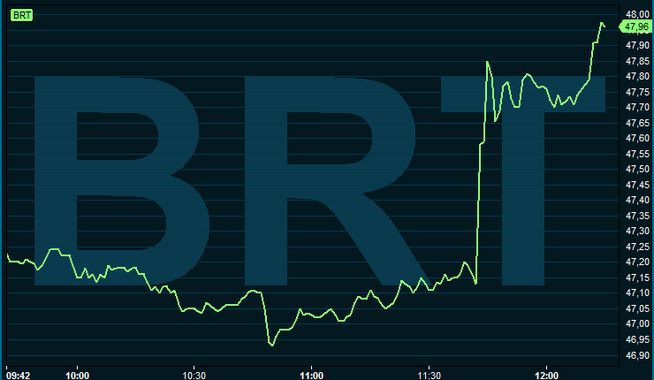Saudi Arabia will be willing to reduce its own oil production against that Iran agrees to freeze its production in the year. This informs the sources to news agency Reuters.
such An agreement will constitute a significant compromise, but the proposal should not yet be approved or denied from Tehran. Iran has primarily worked with to increase their production in the aftermath of the sanctions against the country was raised, and now have come up in 3.6 million barrels per day.
– The (saudiene) is ready for cutting, but Iran need to go on a freeze, ” says a source to the news agency.
Oljeanalytiker: – Shows the contours of an agreement
Opec countries gather for an informal meeting in Algeria next week, with the drastic overproduction of oil as a pressing backdrop.
With the supposedly cut-willingness from Saudiene, much of the job to be done, believe oljeanalytiker Trond Omdal at Pareto.
– Now see the outlines of a deal. The key has in fact been that Saudiene go with on the cut, he says to E24.

Thina Saltvedt thinks the oil tanks can be a signal of possible increase in ” oil production
He believes Iran may be willing to swallow the condition in the alleged “oljedealen” to go with freeze to production, as the current 3.6 million barrels is a relatively high level.
– One can argue that Iran could not managed to increase much more, ” says Omdal.
– How much contributes an agreement between these two countries in isolation to meet kuttbehovet?
– We still don’t know how much Saudiene is willing to cut, but it’s a half a million barrels, there may be enough based on what Libya and Nigeria produced in august, says oljeeksperten.
(the Case continues below the graph.)

OLJEHOPP: the price of oil lifts considerably at the news of the new potential oljeavtale.
Will get with more countries
the Offer is still not accepted by the iranian government, according to Reuters.
Two sources tell the news that it is also expected that The united arab emirates, Qatar and Kuwait will contribute to cut its production if Saudi Arabia comes in the finish with the agreement.
the Proposal can be considered as a shift in the saudi Norwegian oil policy. They have long refused to cut production to bring up prices, nor have the priority to hold on to their market share by increasing oil production.
No comments:
Post a Comment